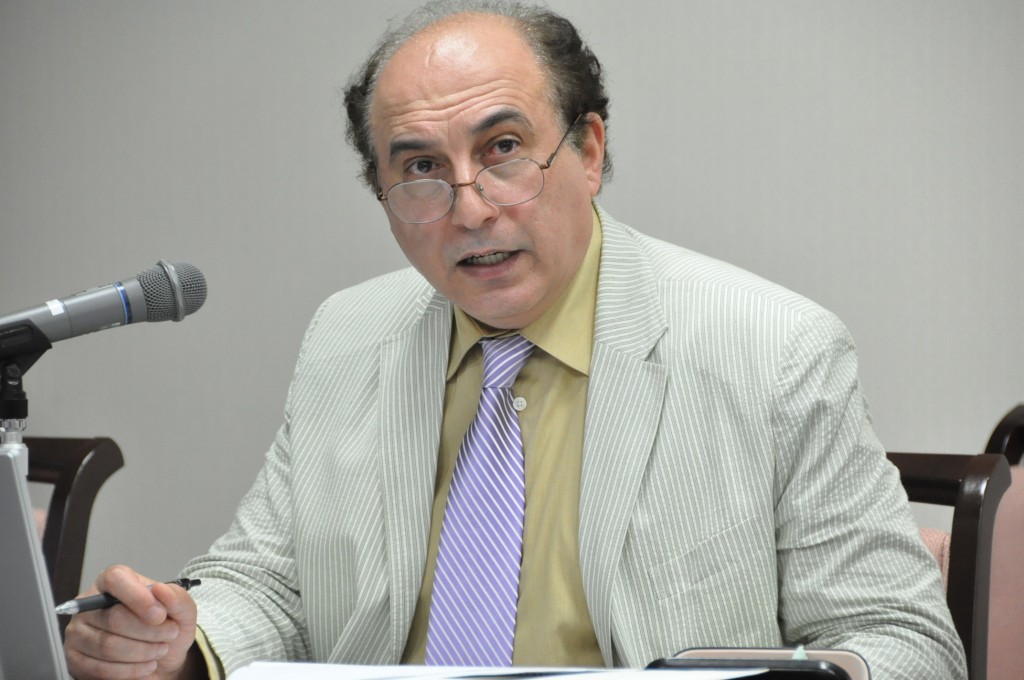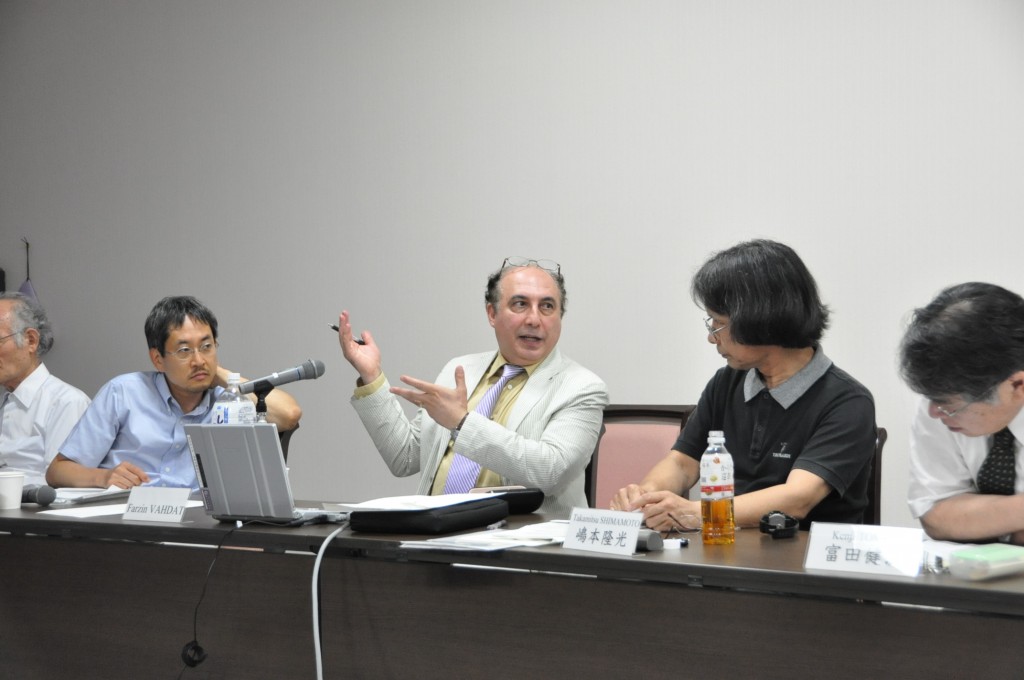Center for Interdisciplinary Study of Monotheistic Religions(CISMOR)Doshisha University
> Past Research Activities > Contemporary Islam and the Question of ModernityPast Research Activities
Project 1: Study Meeting #2
Contemporary Islam and the Question of Modernity
| Date: |
2010/07/03 13:30 − 17:30 |
|---|---|
| Place: | Conference Room, Keisui-kan 1F, Shinmachi Campus, Doshisha University |
| Speaker: |
|
| Commentator: |
|
| Summary: | |
|
If we are to understand the background of the Muslim movement seen in today’s Islamic world and the situation surrounding millions of Muslims, we have to deepen our understanding of the complex relationship between Islam and modernity in Islamic society. Modernization is a complicated phenomenon consisting of various stages. For the modernization of Europe, its initial stage has the greatest importance; it was during the Reformation when discipline gave rise to independent individuals. According to Dr. Farzin Vahdat, the Islamic world is currently in the midst of this critical stage. In his recent book, Islamic Ethos and the Specter of Modernity, Dr. Vahdat focuses on eight Islamic thinkers and analyzes the attitudes and sentiments toward the modern world held by Muslims in an Islamic community that is undergoing this critical stage. Needless to say, the independence of individuals is closely associated with the modernization, not only in the West but also in the rest of the world. A society, where concepts such as democracy and human rights are accepted as valid, would be possible only when a majority of the population has its own “agency” or “subjectivity.” The Islamic counterpart of the idea of “agency and subjectivity” is the concept of caliph as the successor to God on earth. In the contemporary Islamic thought, human power is conceptualized as something that works by proxy and thus indirectly. Those thinkers discussed in the abovementioned book by Dr. Vahdat addressed the concept of “power as proxy” as a basic means to respond to modernization. However, most of them shared the notion that this concept is contradictory, as it can deny the supremacy of God. In developing new prospects for Muslims, therefore, they had to deny the agency of man, which is one of the essential factors of modernization, while developing a new Islamic image of a man who is empowered. This is because empowering man implies depriving God of His power. By considering the sentiments of Muslims toward modernization in this way, we can clearly see the puzzlement and disturbance experienced by the modernist Muslim thinkers in the face of such a contradiction. Among these thinkers, this study meeting focused on Muhammad Iqbal (1877−1938) and Sayyid Qutb (1906−1966) and analyzed the question of “today’s Islamic world and its modernity.” At the core of Iqbal’s thought is the “human ego,” which he called by a Persian word “khudi.” Using this word, he attempted to establish a concept of individual independence. He believed in the freedom of man on a religious basis and consistently advocated the concept of free will. Iqbal attempted to reinterpret Islam based on his understanding of modern Western philosophy. As it turned out, however, the attempt by Iqbal to construct the self of the Muslim led to the creation of the “other,” namely, the “West.” By criticizing the West and comparing the West with Muslims, he worked to establish the self of the Muslim. At the core of his political view is the belief in disobedience to any beings other than God. He believed that obedience to earthly authority, whether religious or secular, makes us captive, and only obedience to God can set us free. Politically, he did not support the separation of religion from politics, or more precisely, the separation of the political issues of a community from other issues, due to his belief that the subjectivity and freedom of man originates from God. At the same time, however, he did not support theocracy in the form of governance by priests on behalf of God either. Sayyid Qutb, on the other hand, is considered to be the most influential ideological leader of the modern Islamic movement, not only for Egyptians but also for both Sunni and Shia Muslims. Qutb attempted to create a new Islamic civilization that would replace liberal-democratic welfare states and the communist system that is no longer workable, as well as autocratic states. Like Iqbal, Qutb, too, believed that constructing the “self” of the Muslim is the only way to vie with the power of the modern world. He held that being released from obedience to any beings other than God constitutes the very basis of the Islamic faith. At the core of his thought, he, like Iqbal, believed that a man can be empowered by establishing the awareness of the “self” that is subjected only to God. Qutb held that the self can be strengthened only by hard discipline, but in strengthening self, man has to depend on the power of God. Here, we can see the contradiction in the thought of Qutb who emphasized the power of a man on the one hand and the limits of the capacity and will of a man before God on the other. As discussed above, Iqbal and Qutb made important contributions to the development of the notion of the “agency and subjectivity” of a man based on Islamic knowledge. Considering that the subjectivity of a man is an essential element of the modern world, the thoughts of Iqbal and Qutb may prove to have been important for the modernity of the Islamic world in the future. Souki Yamashita (Research Assistant, Graduate Student of School of Theology, Doshisha University) |
|

